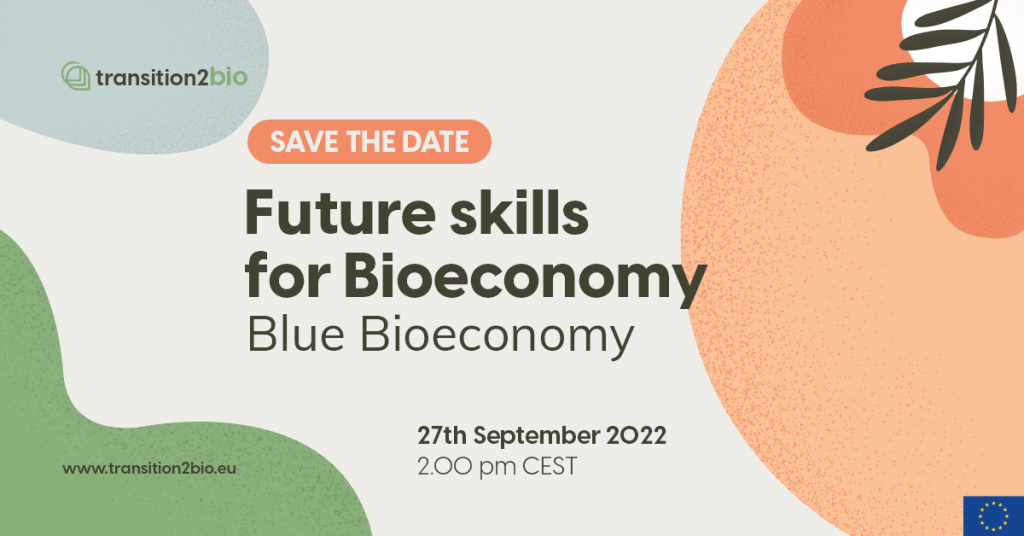EuBioNet annual MML workshop “Projects2projects” – outcomes and material
The “Projects2Projects” workshop was organised by the European Bioeconomy Network, in collaboration with the European Commission and the projects Transition2Bio, BIOEASTsUP, BIObec and BioGov.net. The event took place on 5 October 2022 at the EC Building CDMA, as satellite event of the High-Level EU Conference “Bioeconomy – Enabling the European Green Deal in Challenging Times”, held in Brussels on the 6 and 7 October 2022.
The workshop reached 76 registered participants and was finally able to reach around 60 attendees and involve 40 projects on stage and additional 9 projects participating. All the participants exploited the opportunity of having for the first time in the same room most of the relevant projects that will support the bioeconomy innovation ecosystem for the next years.
The workshop was a great success. The organisers received positive feedback from the participants highlighting the necessity of similar events to boost the collaborations among projects.

The outcomes of the “Projects2Projects” workshop were to:
- Facilitate the awareness and exchange of inspirational good practices stemming from H2020 projects, as well as maximising the exploitation of lessons learnt and heritage of H2020 bioeconomy projects
- Present the objectives of the newly funded Horizon Europe projects in bioeconomy
- Facilitate collaboration among ongoing, concluded and recently funded projects.
- Define common action plans to improve the quality and impact of projects’ activities for the next months.
In order to facilitate the discussion and map the different projects highlighting their main specificities and core purposes, all the participating projects were grouped according to four macroareas:

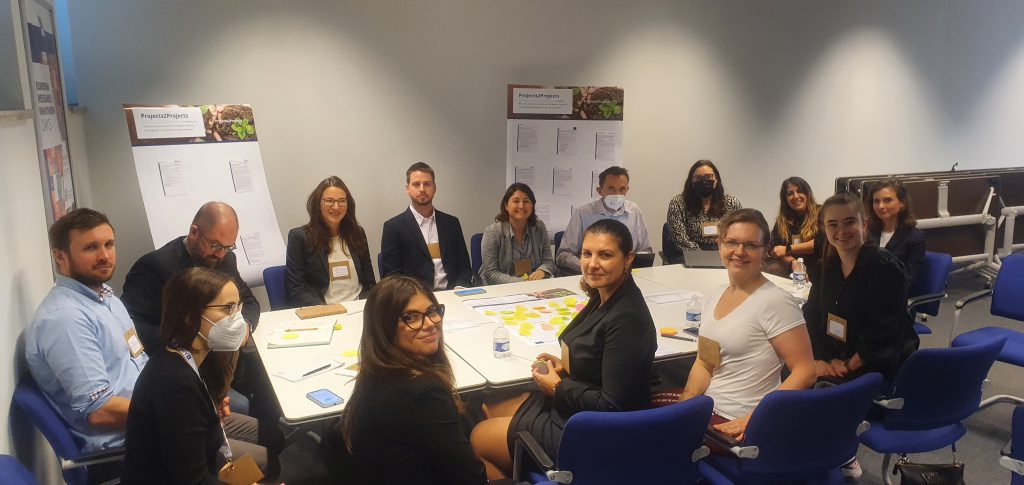
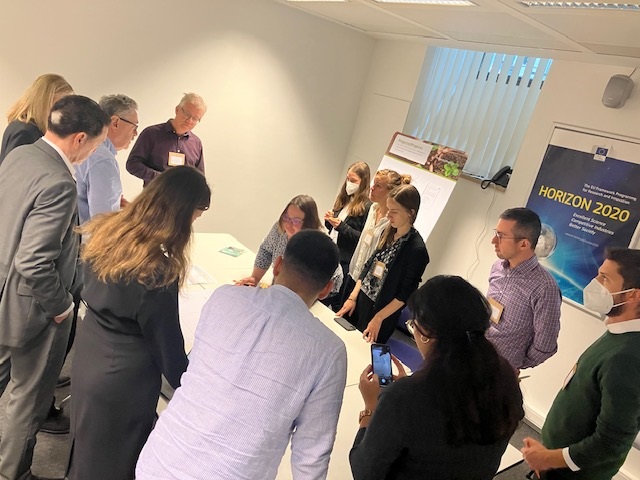
Each macroarea was introduced by the European Commission’s policy officers who provided the audience with the EC expectations to trigger the following discussion.
Specifically, Tomasz Calikowski (on behalf of Laura Varpina) introduced the Macroarea 1 and he also introduced the Macroarea 2, while Veera Tahvanainen introduced the Macroarea 3 and, finally, Giuseppe Pellegrino introduced the Macroarea 4.
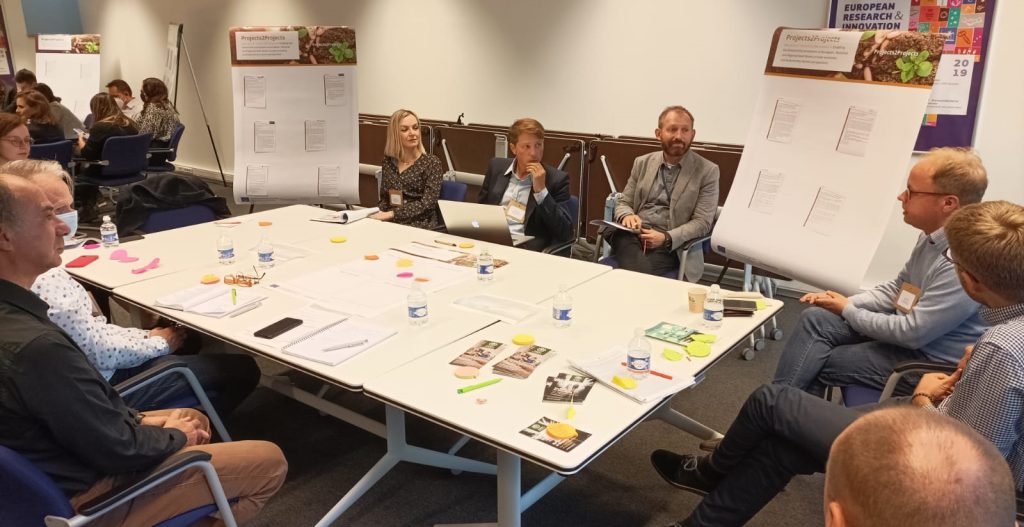
The workshop was divided into two parts. The first one was specifically dedicated to brief presentations of success stories from H2020 projects, with a special focus on exploitable assets.
This part was followed by a walking brainstorming/networking and four thematic group discussions, during which the Horizon Europe projects had the chance to present their main objectives and expected outcomes through the projects’ fiches, collected in the posters dedicated to the different macroareas.
The thematic sessions, organised in thematic working groups, supported the networking and collaboration among the H2020 and the Horizon Europe projects with the objective of defining a common 2022/2023 action plan.
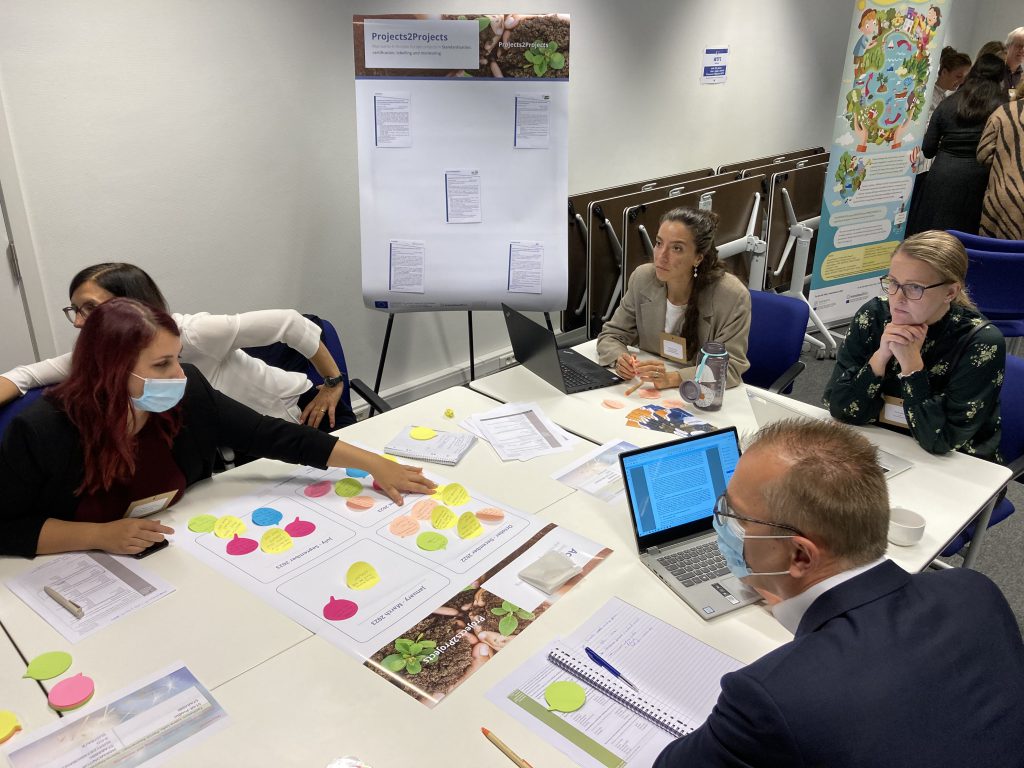
During the discussion, the following outcomes have been achieved:
- facilitate the identification and connection with similar activities
- enable the overview of who is doing what in the next months
- avoid duplication of efforts (e.g. organisation of a workshop in the same topic in the same period)
- maximise the impact and participants to events by joining efforts (e.g. co-organizing an event addressing similar topics from different perspectives)
- facilitate the match between needs and offer (e.g. I’m organizing a conference, I look for speakers, good practices)
Below you can find useful links, collecting all the materials stemming from the workshop and ready to be downloaded.
Agenda of the workshop.
Key points from the introductory speeches delivered by the EC Policy Officers:
PPT presentations from H2020 and Horizon Europe Projects, aggregated per macroarea with useful links:
- Macroarea 1: “enabling the bioeconomy ecosystem at European, National and Regional level (governance perspective)”
- Macroarea 2: “enabling the bioeconomy ecosystem at European, National and Regional level (boost circular bioeconomy and bioeconomy sectors perspective)”
- Macroarea 3: “standardisation, certification, labelling and monitoring”
- Macroarea 4: “bioeconomy communication and education/future skills for the bioeconomy”.
Projects’ fiches aggregated per macroarea, with all the contacts of all projects:
- Macroarea 1: “enabling the bioeconomy ecosystem at European, National and Regional level (governance perspective)”
- Macroarea 2: “enabling the bioeconomy ecosystem at European, National and Regional level (boost circular bioeconomy and bioeconomy sectors perspective)”
- Macroarea 3: “standardisation, certification, labelling and monitoring”
- Macroarea 4: “bioeconomy communication and education/future skills for the bioeconomy”.
Main results of the thematic working group discussions:
- Macroarea 1: “enabling the bioeconomy ecosystem at European, National and Regional level (governance perspective)”
- Macroarea 2: “enabling the bioeconomy ecosystem at European, National and Regional level (boost circular bioeconomy and bioeconomy sectors perspective)”
- Macroarea 3: “standardisation, certification, labelling and monitoring”
- Macroarea 4: “bioeconomy communication and education/future skills for the bioeconomy”.



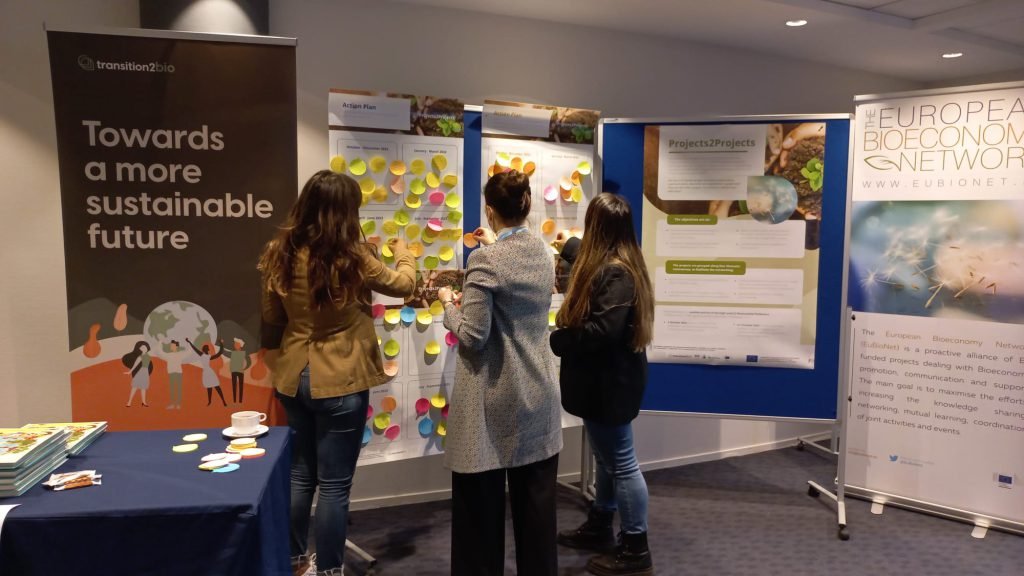

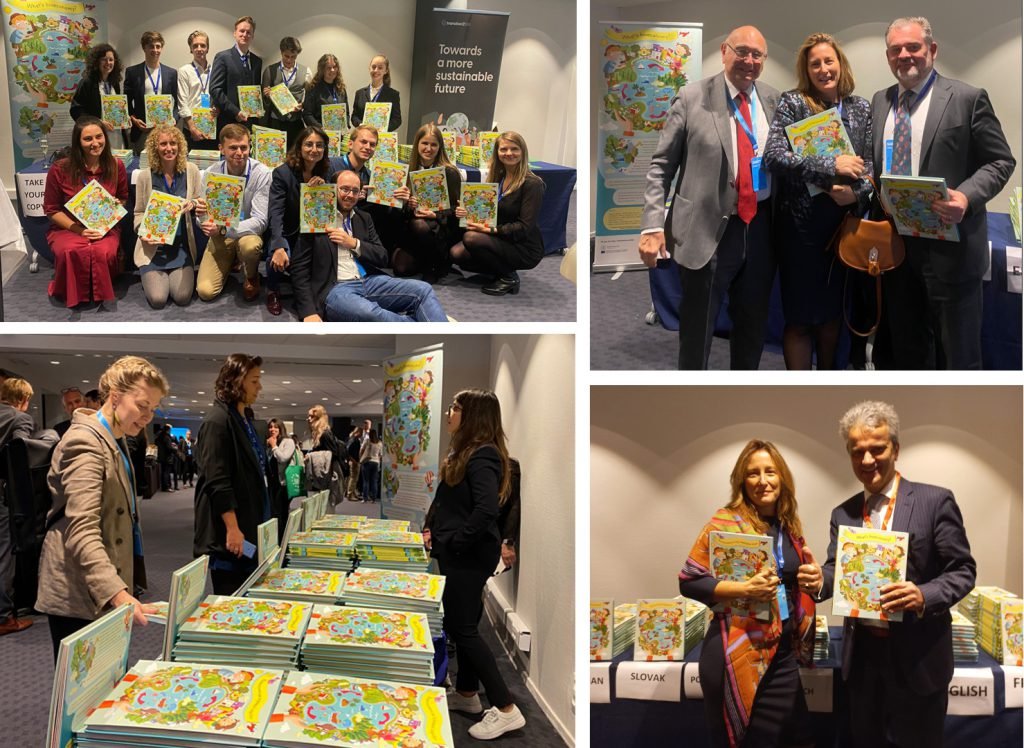


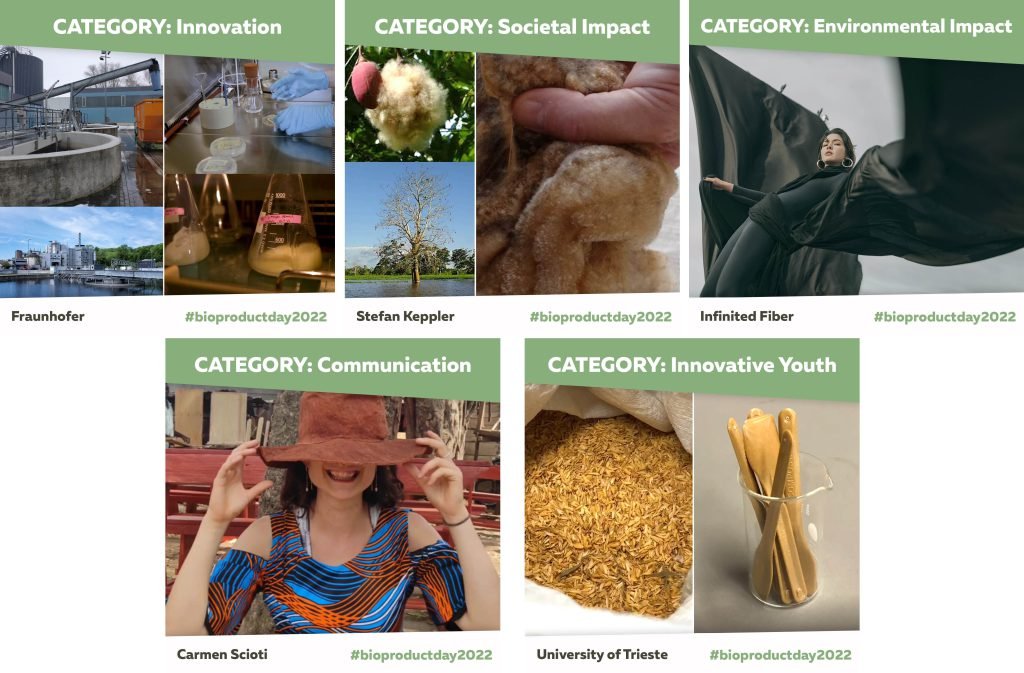


 Policy brief
Policy brief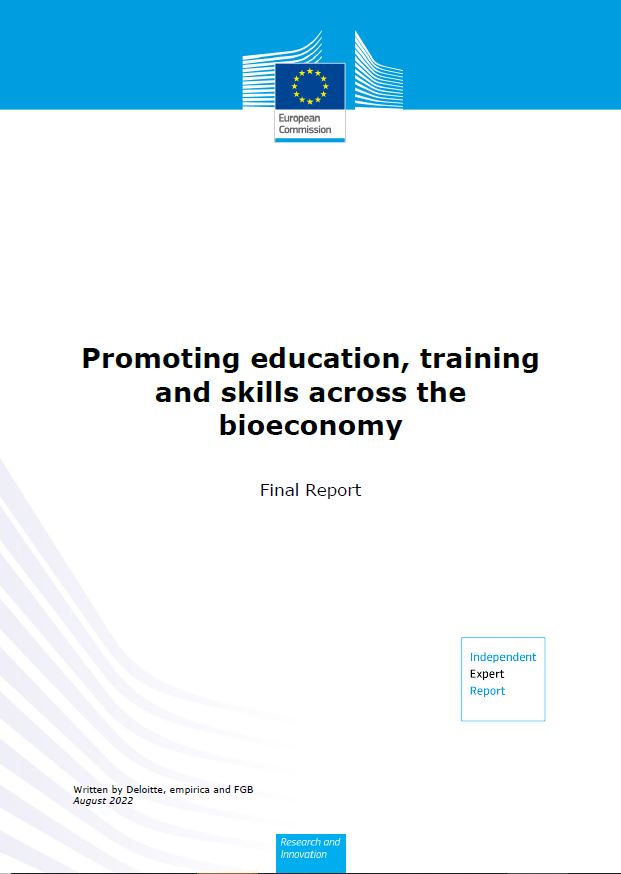 Final report
Final report Higher education
Higher education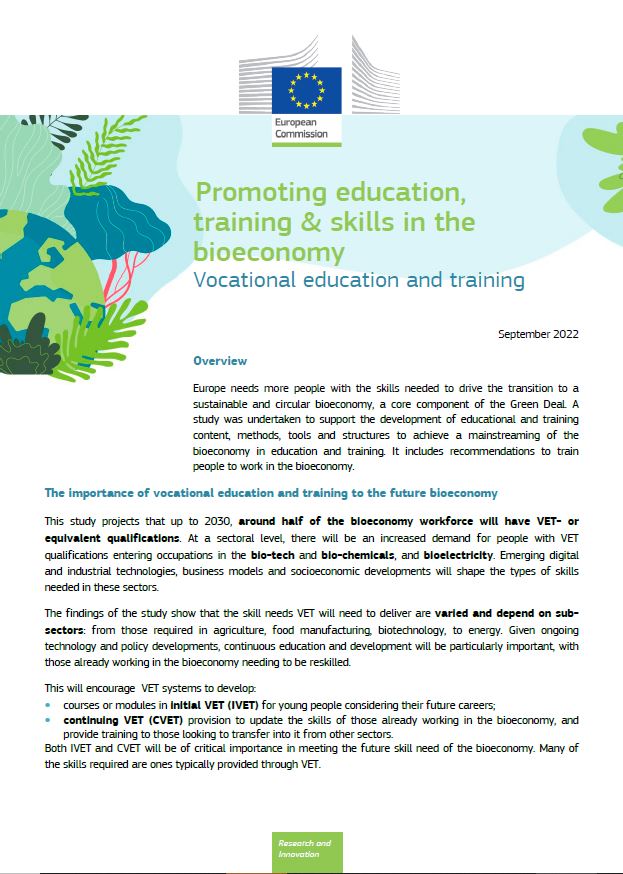 Vocational education and training
Vocational education and training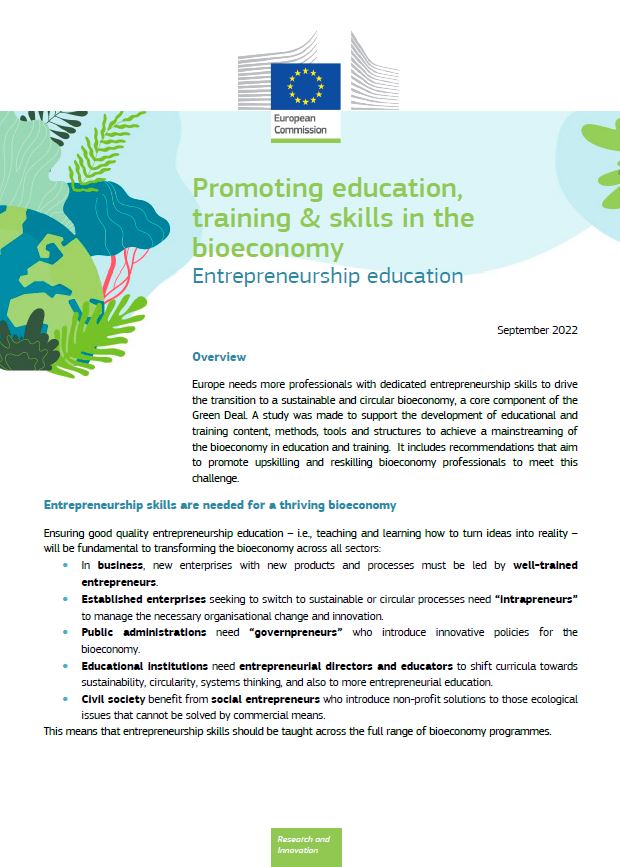 Entrepreneurship education
Entrepreneurship education